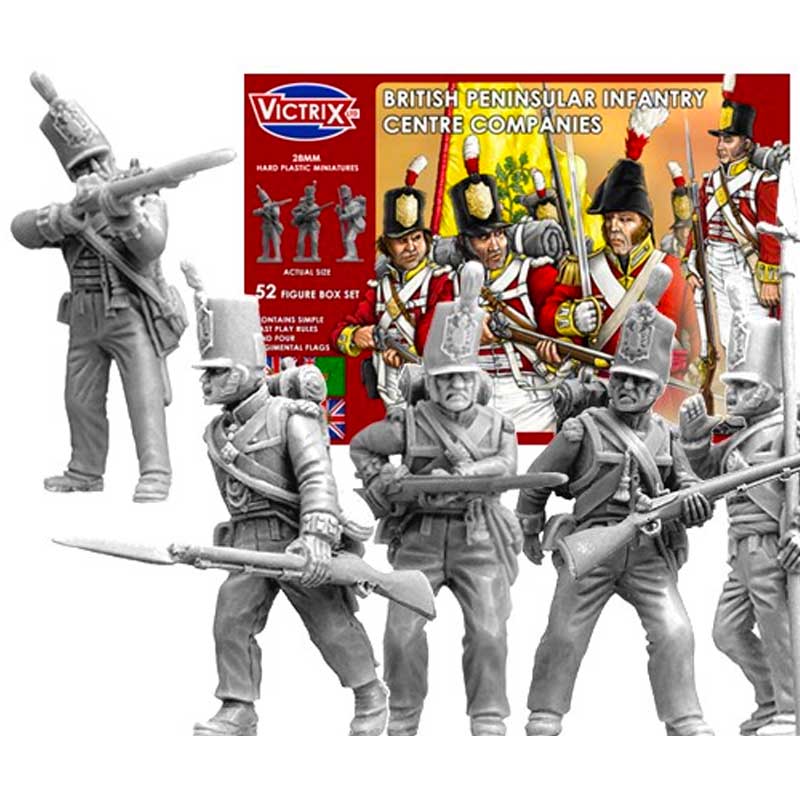Victrix Plastic Model Figures
British Peninsular Infantry Centre Companies (28mm) VX0002
This 28mm hard plastic set from Victrix portrays British line infantry centre companies during the Peninsular War, with figures styled in stovepipe shakos typical of the period between 1808 and 1812. The set contains 52 highly detailed miniatures designed to recreate the disciplined ranks of Wellington’s veteran soldiers.
Included in the box are a full complement of command figures: officers in bicornes, standard bearers, NCOs, and drummers. Each figure is multi-part, allowing for varied posing and unit composition, with fine detailing on belts, cross straps, cartridge boxes, and facial expressions. This makes the set ideal for both gamers and painters looking to build historically accurate units for the Napoleonic era.
The stovepipe shako was a defining piece of kit during the early campaigns in Spain and Portugal, and this set captures the practical, battle-worn look of British troops in harsh campaign conditions. The sprues are well-engineered, moulded in hard plastic, and offer excellent compatibility with other Victrix Napoleonic kits.
- Scale: 28mm (1:56)
- Figures: 52 multi-part infantry
- Includes command figures: officers, drummers, NCOs, and standard bearers
- Stovepipe shako heads included
- Hard plastic kit, supplied unpainted
Note: This model kit requires assembly and painting. Glue, paints and tools are not included and must be purchased separately.
History:
The Peninsular War (1808–1814) was one of the British Army’s most challenging and formative campaigns. Facing off against Napoleon’s seasoned forces, British troops, alongside Spanish and Portuguese allies, fought a series of brutal engagements across the Iberian Peninsula. The centre companies of British regiments—equipped with the stovepipe shako and armed with the Brown Bess musket—formed the disciplined core of Wellington’s army. Officers in bicornes led with rigid professionalism, and NCOs maintained iron discipline in the ranks. These soldiers played a crucial role in turning back the French tide, honing the tactics and resolve that would later lead them to final victory at Waterloo.







